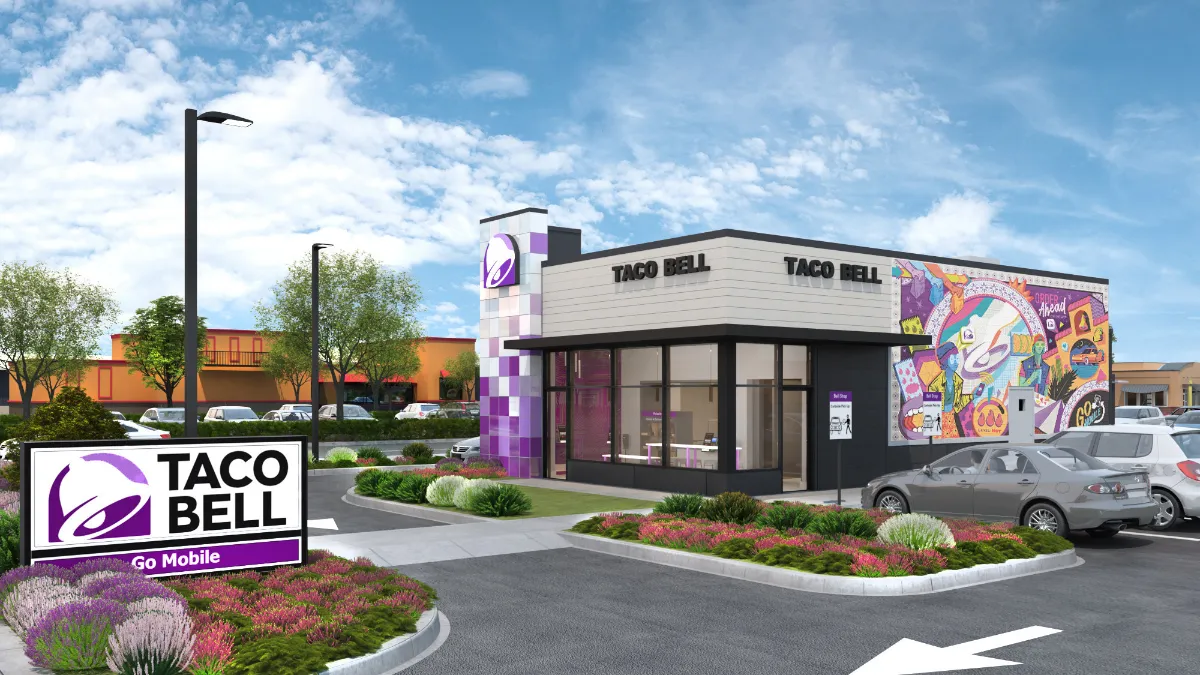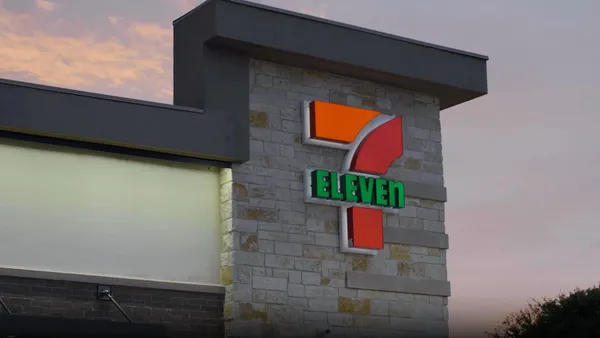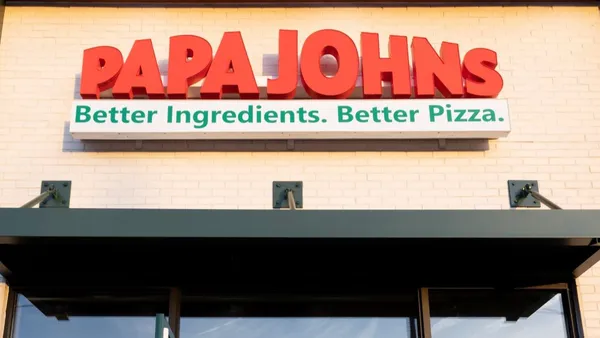Dive Brief:
- Yum Brands, parent company of KFC, Taco Bell, Pizza Hut and The Habit Burger Grill, announced a plan Monday to decrease greenhouse gas emissions (GHG) by 46% by 2030 in partnership with franchisees, suppliers and producers.
- The company also pledged to achieve net-zero emissions by 2050.
- Yum has a history of sustainability work, setting its first energy conservation goal in 2006. Since 2017, the company has reduced its GHG emissions an estimated 18% on a per-restaurant average, according to the company. Yum also built its first Leadership in Energy and Environmental Design-certified green restaurant in 2009 and now has 45 such restaurants in its portfolio.
Dive Insight:
Such a vast reduction in greenhouse gas emissions could have a significant impact across the industry, considering Yum Brands' footprint of more than 50,000 global restaurants. The company laid out several strategies aimed at hitting the goal:
- KFC is investing in green buildings and piloting energy optimization systems to scale. These tests have yielded 18% overall energy savings in the brand's Malaysia market.
- Yum will move 1,000 restaurants to renewable energy by the end of this year, which is the equivalent of removing emissions from 38,000 vehicles, according to the company. Yum also moved its corporate offices to 100% renewable energy last year.
- The company joined the Renewable Energy Buyers Alliance, which includes energy buyers, providers and service providers working to "accelerate the transition to a zero-carbon energy future."
Yum Brands recently started prioritizing science-based carbon emissions reduction specifically, beginning the necessary work involved to join the Science-Based Target Initiative in 2019. That same year, a global investor coalition also challenged six of the largest QSR companies, including Yum Brands, to reduce their greenhouse gas emissions and water usage. Farm Animal Investment Risk & Return (FAIRR) reported that agricultural emissions, including those from meat and dairy producers that supply QSRs, are on track to contribute around 70% of total allowable GHG emissions by 2050.
The company has been making progress. This past December, the Carbon Disclosure Project gave Yum an A- score in climate and water sustainability metrics, up from a B in 2019.
Several chains are doubling down on sustainability efforts, including Starbucks, which most recently announced a goal to become "resource positive" and reduce emissions in how its coffee is grown. Wendy's released its 2020 corporate responsibility report last week, aiming for 100% of its consumer-facing packaging to be sustainably sourced by 2026 and setting a science-based target to reduce GGE by the end of 2023. Chipotle also recently released its 2020 sustainability report, achieving a 51% waste diversion rate. The chain's new goals include the continued conversion of conventional farmland to organic farmland, the pilot of at least one new packaging design that reduces plastic this year and reducing overall waste by 5% by 2025. Dunkin' also recently announced its intentions to create less waste.
If it seems like brands' sustainability efforts are accelerating, that may be because more consumers and other stakeholders are prioritizing such work. A recent Markstein study conducted by Certus Insights found that 70% of consumers say they want to know what the brands they support are doing to address social and environmental issues, and a Zeno Group study finds that consumers are four to six times more likely to purchase from purpose-driven companies.
The COVID-19 pandemic may have sped up sustainability benchmarks even more. A recent report from JP Morgan, for example, finds a majority of investors view the pandemic as a positive catalyst for environmental, social and governance efforts and that stakeholders are "increasingly pricing in sustainability preferences."













